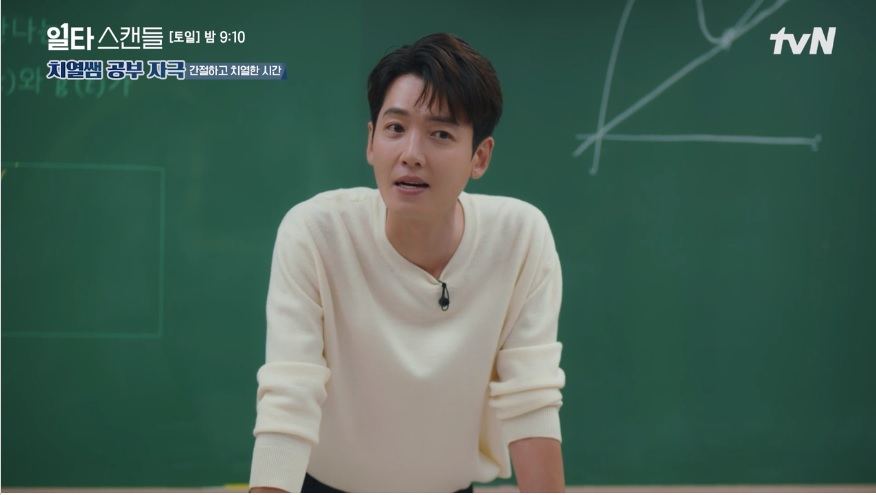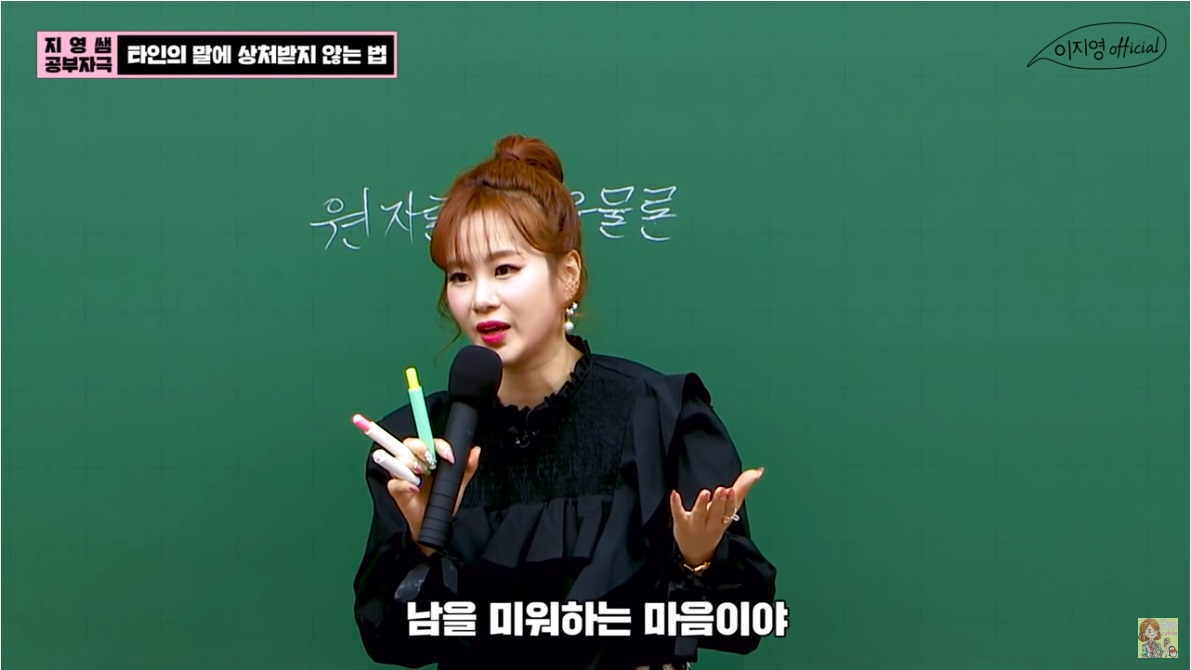[Newsmaker] Star lecturers: Divas of private education and inspiration for many
Koreans' pursuit of famed teachers dates back to 1960s, but internet and online classes elevated their status to quasi-celebrities
By Kim So-hyunPublished : Feb. 10, 2023 - 12:23
In today’s world of live broadcast sports and entertainment backed with mega corporate endorsements, there’s a constant stream of people whose net worth amounts to hundreds of millions of dollars -- sports legends, music greats, movie stars and business magnates.
In South Korea, there’s one more profession on the list -- star lecturers.
In the tvN drama “Crash Course in Romance,” which began streaming on Netflix last month, the male protagonist Choi Chi-yeol is called a “man of 1 trillion won” ($800 million) as his in-person and online math lectures and published study materials generate that much economic value annually.

Nicknamed “BTS of the private education sector,” Choi, played by Jung Kyung-ho, shoots commercials where he dances and parodies a fight scene from the 2014 movie “Kingsman: The Secret Service,” finishing them off by enunciating a line: “Pride maketh math.” The hagwon, or private cram school, he works for is called The Pride Academy.
Celebrity lecturers
Like other celebrities with their entourage of managers, stylists and makeup artists, Choi hires a team of teaching assistants who work like a small firm or think tank that does everything from analyzing and writing exam questions to handling the VIP’s publicity.
The drama is fictional, but does not stray far from reality.
In Korea, where the cut-throat race for elite schools has inspired many TV dramas and films already, there is a unique breed of quasi-celebrities called “ilta” lecturers. “Il” is from the Korean word for No. 1 and “ta” is from star.
These "No. 1 star" teachers have amassed massive fortunes, fame and fandom for motivating pupils to work harder, know better and do better -- in exams.
Lee Ji-young, hugely famous for her online lectures, in 2020 shared her bank account balance of some 13 billion won, after revealing her annual income of over 10 billion won just in salary. She owns multiple supercars and wears extravagant watches and jewelry. Clips from her past online lectures garner millions of views on YouTube.
Classroom is the stage
These instructors are not only the best at teaching, but are also master at keeping tired teenagers awake by doing jump kicks or other gimmicks in the middle of class, or in the case of online lessons, wear wigs and dress up as certain characters. Like K-pop idols, some owe their popularity to good looks.
Lee said in media interviews that she gets up at 4:30 a.m. in the morning and spends an hour getting her hair and makeup done by a team of specialists, before giving lectures back to back for 13 hours.

“(The lecturer’s style and fashion) could be an additional factor making the lecture more interesting,” she explained.
The theatrics and fandom of the star lecturers didn’t just emerge overnight.
In the '90s, there was a famous cram school called Hongik Hagwon in Gangnam, where the head teacher Kim Sam-ryong was both ill-famed and sought-after for caning pupils, a socially accepted form of discipline then in Korea.
During class, he would write about five math problems from past exams of competitive Gangnam high schools on the board, and call on a few from the room full of 100-plus kids to solve them.
Those who fail to would get smacked on the butt with a wooden stick in front of the class. The teacher, or the spasmodic showman, also threw pieces of chalk at the chalkboard as he yelled how important a problem was, spat on it and rubbed the top of his head over it like a madman.
Nevertheless, his classes were always full, thanks to rumors that he helped some previously underperforming pupils to Seoul National University by somehow “transforming” them.
Divas of private education industry
Koreans' intense pursuit of celebrated teachers dates back to the 1960s when there was an exam for middle school admission.
From the late 1960s through '70s, private tutors were all the rage. Tales of mothers selling their gold rings to afford a high-demand tutor or getting hard-to-get food ingredients to feed a sickly tutor to regain his strength to teach her child were commonplace.
After the Chun Doo-hwan administration banned all tutoring outside schools in 1980, the private education craze subsided for a few years until illegal tutoring began to pick up.
Hagwon lectures during school breaks were allowed from 1989, and throughout the year from 1991. The nominal ban on private tutoring was officially ruled unconstitutional in 2000.
"Tutors known as 'tweezers' for their gift in picking out questions that will be on the tests thrived in the '70s and '80s, and people queued from dawn to sign up for classes by famous hagwon teachers in the '90s, so the demand was always there, but not everyone had access due to financial or geographic reasons," said Huh Yeol, professor of educational technology at Kennesaw State University in the US.
"Then came the internet and online courses in the 2000s, which removed the economic and geographic barriers, and met with high potential demand, leading to an explosive growth of the online lectures market."
The online courses were also a boon for the instructors who, freed from physical and time constraints, could achieve an economy of scale, he added.
As for the extremities of shadow education, or private supplementary tutoring beyond formal school hours, corporal punishment in schools was prohibited by law in 2011, but other types of drawbacks from hypercompetition still exist.
A hit drama's portrayal of mothers scheming to get their children into an “all-care” hagwon class for only the top students aiming for medical college by taking down another kid who scored higher in a level test; and stories about stressed children trapped in hagwon until late night becoming kleptomaniacs or mythomaniacs are a reflection of reality.
And it’s not just the children who come under immense pressure.
Star lecturer Choi in “Crash Course in Romance” also suffers from an eating disorder due to overwork and stress.
Despite the dramatic perils of being rich and famous, in reality, these ilta lecturers are a major force of inspiration for Koreans dreaming of becoming luminaries on YouTube or in hagwon, or succeeding in other ways, like how K-pop stars are to children.
Lee Ji-young is popular for her pep talks on positivity, grit and how, growing up poor, she studied hard to succeed, and has countless fans who post comments saying they cried or that she truly encouraged and supported them through difficult years.
"Weekends are the busiest. I gave lectures even during the Lunar New Year's holidays. I have 3.5 million students," she said in a recent YouTube interview.



















![[Today’s K-pop] Treasure to publish magazine for debut anniversary](http://res.heraldm.com/phpwas/restmb_idxmake.php?idx=642&simg=/content/image/2024/07/26/20240726050551_0.jpg&u=)